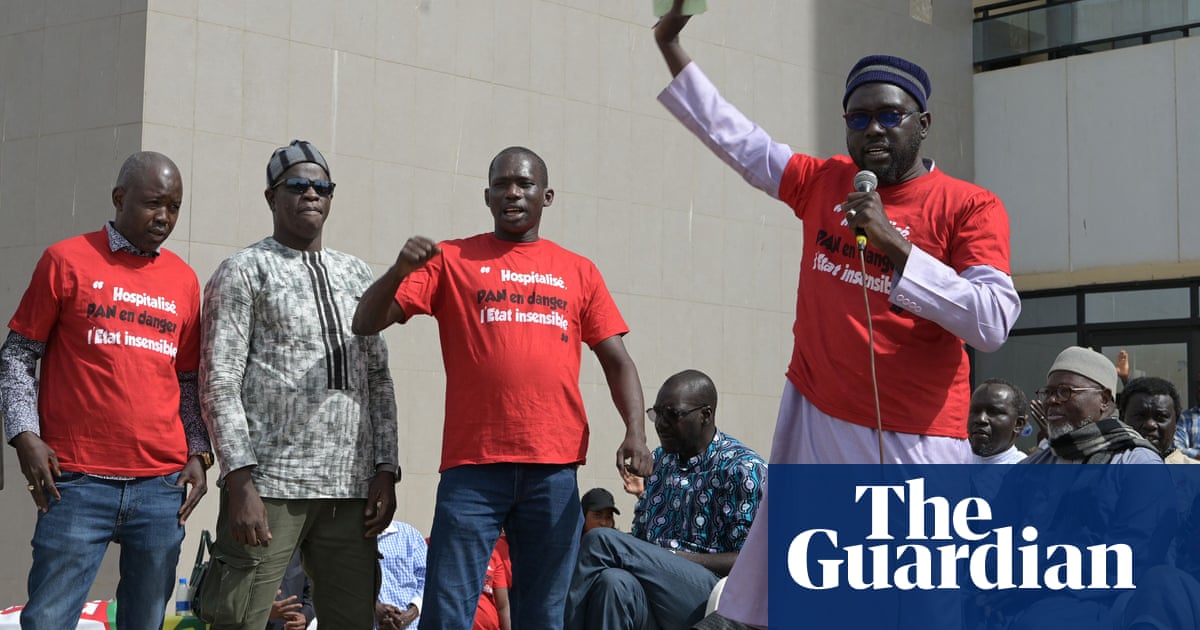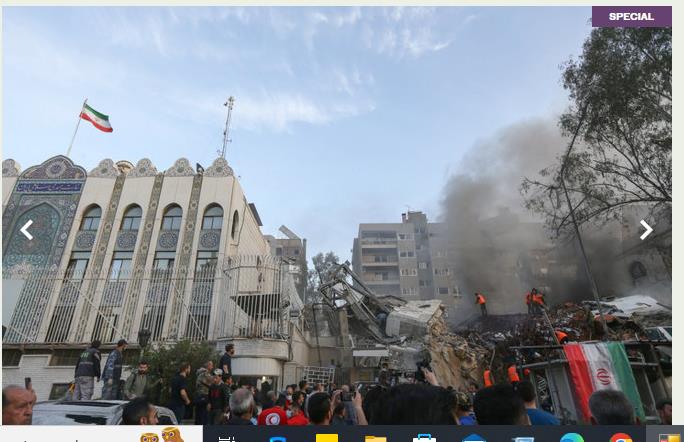
It was 6pm on Thursday when Mikheil Saakashvili, ex-president of Georgia and once darling of the west, collapsed on a linoleum floor of a high-security prison in Tbilisi.
“He lay there, unconscious, his eyes rolled back,” his lawyer told me today. “I thought that was it. I thought we had lost him.”
A neurotic, almost hysterical fear of Saakashvili’s death has taken over Georgia and its politics in recent weeks. In the early 2000s, Saakashvili turned this small nation in the Caucasus into a rare post-Soviet success story – a beacon of democracy in Russia’s authoritarian backyard, and a close western ally. Now he is in a critical condition after seven weeks on hunger strike. He began the protest to demand a fair trial on charges pressed against him by the current government – charges he says are designed to destroy him and Georgia.
As his condition worsened, the Georgian government repeatedly dismissed calls to transfer Saakashvili to a proper medical facility. It has finally capitulated now following days of mass protests, and pressure from the US state department, and agreed to temporarily move him to a military hospital.
But this is already the biggest crisis Georgia has experienced since the Russians invaded in 2008, partly to punish him for his reforms, and his efforts to get Georgia into Nato. Many fear his imprisonment and mistreatment could result in a civil confrontation and push the country back into the Russian orbit.
Saakashvili is undoubtedly also responsible for what is going on. Misha, as Georgians call him, is a deeply polarising figure. He is revered by many for the unprecedented anti-corruption reforms that turned one of the most corrupt countries in the world into a functioning, modern state; but he is also hated for the populist, authoritarian tendencies he developed in the process. His unpredictable and eccentric behaviour has cost him many friends internationally – the reason, perhaps, why the west has shown little interest in the fate of its former golden boy.
Russia, on the other hand, is keenly interested in the ongoing crisis. A decade ago, Vladimir Putin famously threatened to hang Saakashvili by his testicles. It looks like the Georgian government is now doing the job for him.
Having covered Saakashvili’s career from the rose revolution that swept him to power in 2003, I never believed that he would come back from his eight-year exile in Ukraine, where he had launched an unlikely second political career. Along with the rest of Georgia, I gasped when on 1 October this year, his famously lively Facebook page lit up with the news that he was suddenly in Batumi, a city on the Black Sea coast.
Saakashvili had not been back since he lost power to Georgian Dream, a party set up by the billionaire Bidzina Ivanishvili in 2012. It was Georgia’s first democratic transition, a massive milestone for a country that has been occupied by Persians, Turks, Russians and the Soviets – and where power has traditionally been transferred only through wars or revolutions.
As Kakha Bendukidze, one of the founding fathers of the modern Georgian state, put it in 2012: “Georgia made a step forward … but sometimes when you make a step forward, you step in shit.” Soon after the election, Ivanishvili, who made his fortune in Russia during the 1990s, left public politics but continued to rule from behind the scenes, swapping prime ministers so often that even Georgians struggled to remember their names. The authoritarian populism softened under Saakashvili’s successor, but so did efforts to join Nato and the EU. Economic growth slowed and petty corruption crept back in.
If Ivanishvili became the puppet-master of the Georgian government, Saakashvili assumed the same role for the opposition. From his exile in Ukraine, he continued to direct his allies at home, fracturing and weakening the opposition in the process. For a decade now, the struggle of these two warring mavericks – an exiled ex-president and a billionaire occupying a futuristic mansion on a hilltop overlooking Tbilisi – has defined Georgian politics. It took a new turn in October, when Saakashvili hopped into the back of a milk lorry and smuggled himself into the country.
“I risked my life and my freedom to be back,” Saakashvili said in his video address, although a Georgian government spokesperson insisted that Saakashvili’s return to the country was “a well-produced fake, in fact a deep fake”. Nevertheless, 12 hours later, the government arrested him and threw him in jail.
Saakashvili went on hunger strike to demand a fair trial, but the government continued to deny him access to court. As his health deteriorated, the opposition started staging mass rallies demanding proper treatment. The government, meanwhile, just shrugged. Saakashvili had the “right to commit suicide”, according to the prime minister, Irakli Garibashvili. During his long stay in jail, the government has released shocking security camera footage that showed the half-naked ex-president being dragged through the prison corridors.
By releasing the humiliating pictures of Saakashvili, the Georgian government is appealing to its most radical voters, further polarising Georgia’s already fractured society.
There is one winner in all this mess, and that is Russia. While western news channels have paid almost no attention to the story of Saakashvili’s imprisonment and hunger strike, Russian state-affiliated television can’t get enough of it. During a recent Russian TV show, the studio floor was lit up with images of the Georgian flag, and the hosts walked over it, as video footage of the humiliated Saakashvili played on giant screens behind them.
As I watched it, I remembered how, during one of my last interviews with Saakashvili in 2015, I pressed him on the mistakes of his presidency. He admitted that there were many: too much power, too much arrogance, too little compromise. He had many regrets. So why not go back? I asked. He had been tried in absentia and sentenced to six years in jail for abuse of power – but if his regret was real, and if he cared that much, why not serve the term?
“Because if I go to prison, they will try to kill me,” he replied. In this ongoing crisis, he looks dangerously close to being right.
Natalia Antelava is the editor-in-chief of codastory.com












